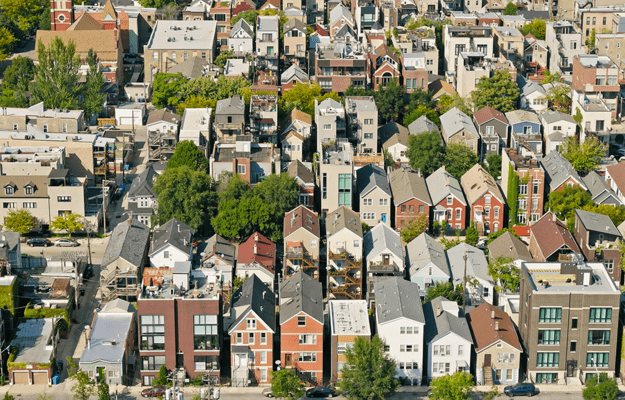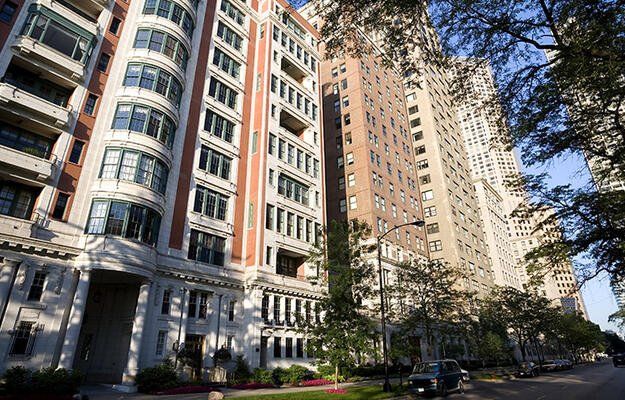
Proactive Rental Inspections Can Help Improve Tenant Health Outcomes
- Title:
-
Model Ordinance on Proactive Rental Inspection: For cities & counties interested in establishing a PRI program
- Author:
-
ChangeLab Solutions
- Source:
- Publication Date:
-
2023
Inequities in safe, stable, and affordable housing fuel inequitable health outcomes. Poor housing conditions—such as water leaks, poor ventilation, and inadequate heating and cooling—can contribute to lead exposure, asthma and respiratory conditions, increased rates of injury and mortality, and more. These health risks are more pronounced in low-income and communities of color because of a history and perpetuation of structural racism and other structural barriers within the housing system.
For millions of people living in substandard rental housing, health hazards are an unfortunate reality. As of 2018, more than 45 percent of US homes (more than 45 million) had one or more health or safety problems. And every year, more than 12 million residents experience injuries related to their homes. Rental inspections are vital for ensuring renters have access to safe, healthy housing. Proactive rental inspection (PRI) programs, which involve preventative and regular checks of homes rather than waiting for tenant safety complaints, offer a promising health-equity-focused approach while increasing compliance with housing standards. PRI programs aim to maintain safe homes, protect tenants from eviction or retaliation, and foster collaboration between local governments, housing advocates, and landlords to enhance housing quality and affordability. ChangeLab Solutions created a guide and optional model ordinance language to assist local governments in developing PRI rules, customizing their approach, promoting cooperative compliance rather than a punitive approach, and addressing equitable enforcement issues. These resources were informed by interviews with people across the country who work in organizations related to housing stability.
Key findings
PRI programs vary by the types of rental housing in a city or county, the locality’s needs, resource availability, and (to an extent) state law, meaning there is no standard approach to PRI program design or implementation. This guide follows a fill-in-the-blank model of a PRI ordinance, along with comments and prompts for customization with four major sections: general, registrations and fees, inspections, enforcement, and program review.
Highlights of this model include the following:
- Program implementation and regulations: PRI programs are often phased in, starting with registration requirements and gradually implementing systematic inspections based on property prioritization. Exemptions for government-subsidized housing are common, as these programs may overlap with federal regulations and inspections.
- Fees, inspections, and compliance: Localities can establish performance-based fee structures, encouraging better property maintenance by offering lower fees for compliant owners and higher fees for repeat offenders. PRI programs rely on regular property checks, which can be resource intensive. Sampling methods can be employed to address resource limitations and considerations for self-certification for consistently compliant landlords and can also present cost savings. Encouraging property improvements and violation notices may offer owners resources and programs for compliance, reflecting a cooperative approach to inspections.
- Community engagement and legal considerations: PRI programs involve a broader resident population, and successful implementations must include community education and partnerships with local organizations. Balancing Fourth Amendment rights, PRI programs require tenants’ consent for inspections, either at the time or through consent forms. Policymakers should consider exercising caution when implementing criminal enforcement rules, as overreliance can exacerbate inequalities and lead to unnecessary law enforcement interactions, especially in communities with a history of mistrust and overpolicing. Criminal enforcement is often best reserved for severe and repeat offenders.
- Tenant protection and support: Local ordinances should provide retaliation and eviction protections, especially for PRI-related reasons, with just-cause eviction policies shifting the burden of proof from tenants to landlords. Funded programs are essential to assist tenants with relocation costs and preventing housing instability and homelessness resulting from code enforcement efforts, which can have significant negative health effects.
Policy implications
The authors argue policymakers and communities should prioritize the equitable implementation of PRI programs. By strategically targeting disadvantaged neighborhoods, ensuring fair-fee structures and inspection frequencies, and tailoring tenant protection measures to address systemic inequities, they can make meaningful strides toward reducing housing-related health disparities and advancing racial equity.


